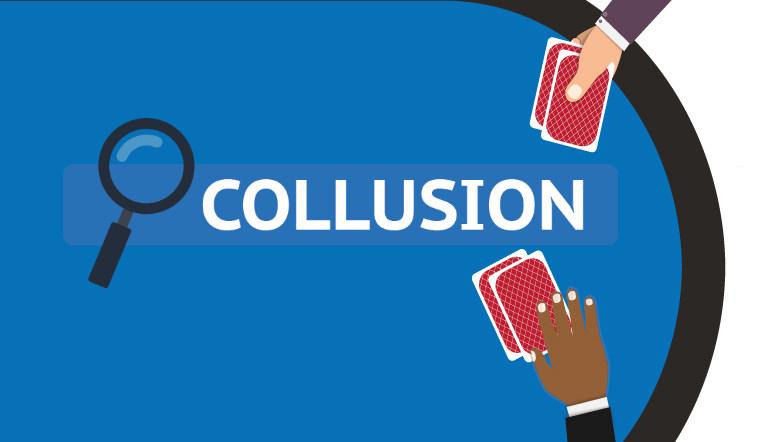Collusion Poker
Replay Poker’s Code of Conduct details the dos and don’ts that make our site a welcoming home for your poker games. Curious about collusion and what it covers? We’re here with a rundown!
WHEEL OF FORTUNE. 14.5 Collusion, Cheating, Fraud and Criminal Activity. Each Player is prohibited from engaging in, and is required to immediately.
Collusion describes a broad spectrum of offenses. It ranges from soft play and implied or implicit collusion, to outright cheating.
- What Does It Mean in Poker? Collusion is cheating involving two or more players working together. Collusion can mean any illegal cheating between 2 or more players. Common types of collusion.
- Collusion is two or more players acting with a secret, common strategy. It is considered to be cheating, and is believed to be the most widely prevalent form thereof in online poker. Forms edit edit source.
A standard definition of collusion is the following:
Collusion Poker En Ligne
The act of collusion involves people or companies which would typically compete against one another, but who conspire to work together to gain an unfair market advantage.
Online Poker Collusion

So, how does that relate to Replay Poker?



Cheating
Let’s start at the high end. The key elements of malicious collusion in poker are:
- the secretive arrangement
- the intent to profit from others
Collusion Poker
This behavior is cheating. Replay deals harshly with any players harming the integrity of our games by sharing hole card information, thereby directly damaging other players.
Implicit Collusion
Implicit collusion is a real, but rare situation in poker games. Players may find that it is in their interests to deviate from standard play, even though the short term effect may be negative for them. Importantly, this is done without prior arrangement and could also benefit others, too. Just as in premeditated collusion, if some players benefit, others are adversely affected.

An example of implicit collusion is when a player is all-in during a tournament. The remaining players may stop betting with anything but the strongest hands and never bluff, in the hopes that one of them will eliminate the short stack. This is almost considered etiquette in some games, particularly if prize money is at stake. By maximizing the chances that a player is knocked out, everyone benefits to a degree. But one or more players may have sacrificed equity in the hand by allowing others to have free cards.
Soft Play
Soft Play is also typically spontaneous. This a milder, yet illegal form of foul play. When players get friendly at a table, one of them might “go easy” by not over-betting in some hands — or even fold what they think might be the winner. This still breaks the basic rules of poker.
Some soft play is prearranged or expected between certain players. An example of this is in the case of significant others or close friends. If this begins to affect other players, such as when someone refuses to call-in bets from a friend when their hand strength is irrelevant, this borders on harmful collusion and is not tolerated.
Nothing has changed in Replay’s approach to detecting and moderating potential collusion. We actively monitor games for suspicious and unfair activity and pride ourselves on keeping a fair game.
Chip Dumping
Sometimes players get low on chips and ask a friend for a top-up. They may go to a Heads Up table so that no one else is directly affected (or sees!), but this is an activity that Replay does not condone.
This is not because we want to force players to purchase chips. Freerolls run around the clock, and daily bonuses can keep you busy in ring games. Here are some reasons why chip dumping is problematic:
Collusion Poker
- Players loaning or gifting chips they have won are not necessarily doing the recipient a favor in the long term. If unskilled players want to learn poker and get more from the experience, they should attempt to shoulder their own losses and improve their (probably flawed) game strategy.
- Players who have an arrangement to share chips will find that playing on the same tables as their friend will become difficult if they feel obliged to avoid confrontations in hands.
- Even if friends who share chips do not play together, the arrangement is unfair on other players who suffer the consequences of their own chip fluctuations and drop down a level in stakes, or start over from square one.